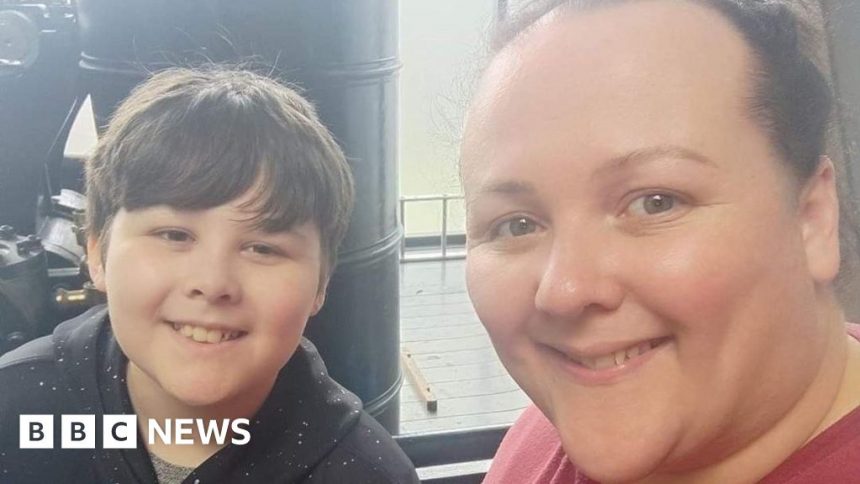Parents lose hope as report says Send system broken
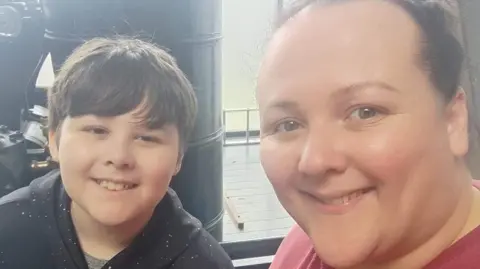 Claire Dyson
Claire DysonFamilies of children with special education needs and disabilities (Send) have lost confidence in a system that “often falls short” and is failing to improve children’s outcomes, the public-spending watchdog says.
Despite funding rising by 58% over the past decade, to £10.7bn, the system is financially “unsustainable” and “in urgent need of reform”, the National Audit Office (NAO) warns.
There are an estimated 1.7 million children with special education needs in schools in England.
Education Secretary Bridget Phillipson told BBC News she was “determined to turn it around” but it “will take time”.
‘Whole-system reform’
The NAO report also warns two-fifths of councils could be at risk of declaring bankruptcy by March 2026 because they are overspending on their high-needs budgets.
None of the steps taken by the government “will address the significant challenges that the system faces”, report lead Emma Wilson said.
“We conclude that the current system is broken,” she said.
“It is not delivering positive outcomes for children and young people.”
The report also highlights concerns the Department for Education does not know how many spaces will be needed in the future, in mainstream schools or other settings, for children with Send.
And the NAO is asking the government to consider “whole-system reform”.
When Dylan was just two and a half, his mother, Claire Dyson, knew he was autistic – but it took nearly 10 years before he was given a diagnosis.
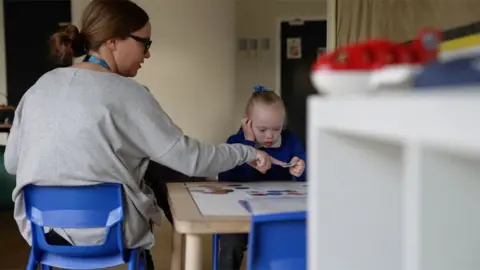 Dan Nelson / BBC
Dan Nelson / BBC“I was so relieved – but when I gave it to the school, there was no real additional support,” Mrs Dyson, from Huddersfield, says.
Dylan was struggling in mainstream school but his needs did not require a special-needs environment “so was kind of in between”.
“It’s an emotional and mental battle – but you have to smile through it and get through it, as you’ve got this little person there that needs you to fight,” Mrs Dyson says.
Now home-schooling Dylan, she agrees with the report’s recommendation to build a more integrated system that includes the NHS.
“I find doctors don’t speak to schools, schools don’t speak to health professionals,” Mrs Dyson says.
“If everybody was on the same page and communicated better, years waiting for a diagnosis would be cut, so you wouldn’t be fighting for so long.”
Kirklees Council said it, like most local authorities, was under increasing pressure to support those with additional needs and had argued for many years the funding it received had not kept pace with demand.
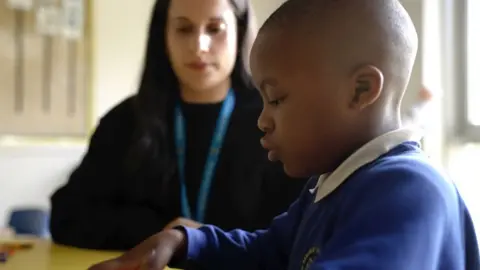 Dan Nelson / BBC
Dan Nelson / BBCThe NAO is also recommending developing a plan to make the education system more inclusive.
Currently, there are limited incentives for schools, as performance data focuses on academic attainment, it says.
Head teacher of New Bewerley Community School in Leeds, Juli Aldwinkle, says her school accepts any child regardless of their need – but some others have a smaller Send cohort because “they are able to say no because they can’t meet the need”.
The rainbow room in her school has places for 20 children with an education, health and care plan (EHCP), to learn through play and sensory activities.
They also have access to mainstream education, with their peers – but there is a waiting list within the school for those spots.
Many of the children that have a place have very high needs and should be in a specialist school – but there are currently no places available.
“It means that we have children with needs that we are trying to meet within a mainstream classroom without the support they individually require – and that has a knock-on effect on the other children within a classroom,” Mrs Aldwinkle says.
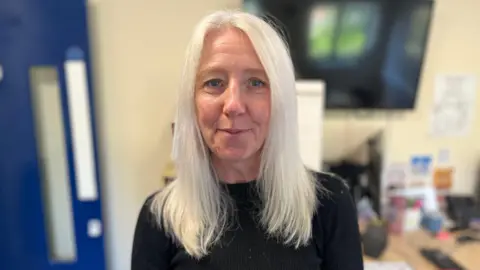 Hope Rhodes /BBC
Hope Rhodes /BBCThe report says many special schools around the country are full – and together, they are supporting an extra 9,500 students.
National Association of Head Teachers general secretary Paul Whiteman said the warning lights “are flashing red” – and without proper investment, “things will get even worse and the system may face complete collapse”.
Both head teacher unions and local authorities are calling for the government to prioritise extra Send funding at next week’s budget – and for councils’ high-needs deficits to be written off.
There are also calls for the government to decide whether to extend a special deal separating those deficits from overall council budgets, to prevent local authorities from declaring bankruptcy.
Ms Phillipson said: “I recognise the pressures that this is placing on councils” but “there is no magic wand – we cannot fix this overnight”.
The government is also introducing a report-card system next year, to replace one-word Office for Standards in Education, Children’s Services and Skills (Ofsted) judgements.
“How schools can do more around inclusion and support for children with special educational needs will be an important part of that,” Ms Phillipson added.



